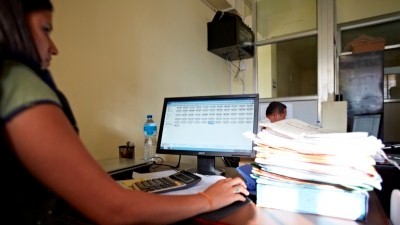KATHMANDU - Nepal has a well-established tradition and experience of economic and development planning. Budget preparation, accounting, reporting, audits are formally well-governed by detailed guidelines and procedures. But, in practice, these guidelines are not always adhered to and ‘unevenly implemented’. Given the current political climate, it is that much harder to implement any reforms in the Public Financial Management (PFM) system. In this context, an in-depth and holistic understanding of the current challenges in the government’s PFM framework is a critical step in identifying the available reform space, as well as the operational risks and potential mitigation measures.
A new report, “Operational Risk Assessment of Public Financial Management Reform in Nepal: A Review of Challenges and Opportunities,” (pdf) intends to inform this dialogue about the implementation of public financial management (PFM) improvements in Nepal, including their prioritization and sequencing in the prevailing political context.
The report was produced by a team from the Center for Aid and Public Expenditure of the Overseas Development Institute (ODI), the UK’s leading independent think tank on international development and humanitarian issues, with inputs from the Government of Nepal’s Public Expenditure and Financial Accountability (PEFA) Steering Committee, the PEFA Secretariat, as well as member development partners in the Public Financial Management (PFM) Multi-Donor Trust Fund including AusAid, Denmark, DFID, EU, Norway and the World Bank.
At the report’s launch in Kathmandu, Philipp Krause, lead author from the ODI, presented the report’s key findings and recommendations, stating that the report aims to provide a “reality check” on the strengths and weaknesses of the existing PFM system and focuses on non-technical aspects such as institutional and political factors.
Noting the progress in reforms to date the Chief Guest, Auditor General Bhanu Prasad Acharya, noted that deeper reforms will require strong political and bureaucratic will. He mentioned that the protracted political transition has increased fiduciary risks and expressed the confidence that the Cabinet Committee reviewing the Auditor General’s Annual Report will help institute public sector audit reforms for the future Public Accounts Committee to lead.
Chair of the session Finance Secretary Shanta Raj Subedi described the report as a landmark analysis that will help in better understanding risks associated with Public Financial Management in Nepal. He said the current FY13-14 will be important in implementing reforms.
On behalf of the Development Partners, Tahseen Sayed, World Bank Country Manager for Nepal, said while the government is taking steps in the right direction a lot more is needed to improve governance, transparency and accountability, build public confidence and bring lasting results for the people of Nepal. She said credible improvements in PFM systems would strengthen the government’s case for channeling more development assistance through country systems and raise Nepal’s partners’ confidence.
Sumar Kumar Sharma, Financial Comptroller General, FCGO, welcomed the practical, problem-solving approach that the report has taken.
The report takes a “problem-centric” approach to addressing the concerns about the state of public finances, focusing on issues that the government sees as priorities and that can be solved in a realistic timeframe. Based on expert opinion and comparative analysis, it breaks down the challenges into four areas and identifies next steps for each of these areas, divided into quick wins, reforms needing sustained engagement, and long-term reforms.

